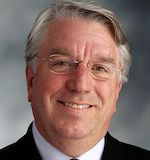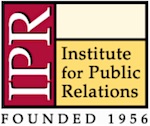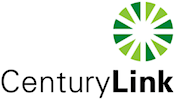The claim on the PRSA website that is a “partner” with Ethisphere and that the “first joint project” has been released, implying more such projects, should be corrected. Ethisphere is going to “talk” to PRSA about the tie but refuses further explanation.
Ethisphere said it did one project with PRSA related to the Ethisphere magazine.
 |
PRSA had quite a run-in with the Ethics Resource Center and its own members in 2000 when it ditched its enforceable Ethics Code in defiance of advice of the ERC and members.
ERC in January 2000, at a cost to PRSA of $50K, created and conducted a poll of 20,266 members that won responses from 2,099 (10.4%). Initial and follow-up questionnaires had 79 items.
Ninety-percent of the respondents “agreed that the Society should deny or revoke membership for failure to meet Code standards,” said an article by Prof. Kathy Fitzpatrick, then with Quinnipiac University, which appeared in the Journal of Mass Media Ethics in 2002. Fitzpatrick also wrote 1,070 words on the Code moving from enforcement to “inspiration” that ran on the Society website.
Belief that a “formal mechanism should be in place to resolve allegations of ethical conduct” was expressed by 92% of the respondents.
Half of them said they “feel an extraordinary amount of pressure to compromise their ethical standards,” said the Fitzpatrick article.
ERC urged that the Code “be rewritten and its enforcement provisions revised as part of a larger campaign to position the Society as the integrity leader in the PR field,” said the article. ERC is a 501c/3 non-profit that conducts polls on ethical subjects for companies. EIN: 13-1671026. Revenues at the time were $1.6 million.
Dvorak Pledges Truth
A ringing endorsement of the need for PR people to speak the truth was posted on the Society website in January by 2017 chair Jane Dvorak who was addressing the issue of "alternative facts." She said:
"Truth is the foundation of all effective communications. By being truthful, we build and maintain trust with the media and our customers, clients and employees. As professional communicators, we take very seriously our responsibility to communicate with honesty and accuracy.
"PRSA strongly objects to any effort to deliberately misrepresent information. Honest, ethical professionals never spin, mislead or alter facts. We applaud our colleagues and professional journalists who work hard to find and report the truth."
Frause Headed Ethics Rewrite Committee
Robert Frause, head of the Ethics Rewrite Committee in 2000, polled more than 300 national directors, chapter presidents, Assembly delegates, section and district chairs on what should be in the new Code and received 20 responses.
Fitzpatrick’s 24-page article on revision says respondents supported a revised Code “with most supporting enforcement and suggesting various degrees of punishment be used.” Law, medicine and CPA groups have enforced codes and elaborate means of determining if there has been wrongdoing.
Respondents supported ethics education and said members “should be held responsible for actions of non-Society members they supervise and should identify employers, clients and front groups.”
While rank-and-file members, leaders and the ERC called for an enforced Code, the 1999 Assembly, 100% accredited “APR” members, rejected that.
The 240 delegates in 1999 were split into 18 focus groups that “seemed to support” the ERC preliminary finding that eliminating enforcement would “send the wrong signal,” wrote Fitzpatrick. But she added that they were “split in their views on whether enforcement was desirable, possible, or both.”
Members Resist Enforcement
A Frause memo to leaders March 17, 1999, said it had become nearly impossible to enforce the Code because of legal challenges by some accused members and the refusal of others to cooperate.
“Our entire committee is frustrated, powerless and unable to do justice to the spirit of the Code,” he wrote. About $200K was spent to create a new Code that had no enforcement provisions.
Charges had been made at the time that the firm of Society treasurer Lee Duffey of Atlanta was involved in a front group that was attacking the Exterior Insulation Finishing Systems (EIFS) form of construction. Duffey was in line to be chair-elect, but the nominating committee picked non-board member Kathy Lewton. Duffey contested the election but lost.
Coverage of the EIFS industry charges included three pages in the Nov. 10, 1997, Atlanta Journal-Constitution and a four-part series by Fox 5/Atlanta in November 1996.
Not mentioned in the Fitzpatrick article was the boycott of the O’Dwyer Co. voted twice by the 1999 board and which resulted in a member filing five charges of ethical violations by the board. Rather than handle the charges, the board invalidated the Code and ordered creation of a new Code.
Where are Lease Details?
One of the complaints of the O’Dwyer Co. about PRSA is that too much information is withheld from the members and neither the general membership or the elected body called the Assembly are allowed to take part in key decisions.
The Society has just moved offices to 120 Wall St. but the decision to do so was never placed before the Assembly or the membership. The February Tactics of the Society announces the move in a banner at the bottom of the front page, but there are no details inside.
PRSA had been paying close to $800K for its offices at 33 Maiden Lane. A new lease would be a multi-million-dollar contract. Most of the ad/PR industry is in midtown or midtown South and trade groups such as the 4As, New York Women in Communications, Assn. of National Advertisers and the American Marketing Assn. are in midtown.


 Louis Capozzi, former chair of the MSL Group and former CCO of Aetna, is the 2018 Paladin Award Honoree.
Louis Capozzi, former chair of the MSL Group and former CCO of Aetna, is the 2018 Paladin Award Honoree. The Institute for PR, which says there is “science” beneath the art of PR, is wallowing in the mud of PRSA and CenturyLink in co-publishing a revived “PR Journal."
The Institute for PR, which says there is “science” beneath the art of PR, is wallowing in the mud of PRSA and CenturyLink in co-publishing a revived “PR Journal." Charges that CenturyLink engaged in fraudulent billing practices have been compared to similar charges against Wells Fargo that cost it $185 millions in fines and resulted in 5,000+ staffers being fired. (1 reader comment)
Charges that CenturyLink engaged in fraudulent billing practices have been compared to similar charges against Wells Fargo that cost it $185 millions in fines and resulted in 5,000+ staffers being fired. (1 reader comment) PRSA VP of Education Jeneen Garcia, with the Society 25 years, was among those at the initial event of Black PR History Month Feb. 9 at Edelman’s offices. Oddly, we had never met or talked to her. (3 reader comments)
PRSA VP of Education Jeneen Garcia, with the Society 25 years, was among those at the initial event of Black PR History Month Feb. 9 at Edelman’s offices. Oddly, we had never met or talked to her. (3 reader comments) PR executive is No. 8 on Careercast’s 2017 list of the ten most stressful jobs. No. 6 is newspaper reporter. Both cause each other a lot of stress. (1 reader comment)
PR executive is No. 8 on Careercast’s 2017 list of the ten most stressful jobs. No. 6 is newspaper reporter. Both cause each other a lot of stress. (1 reader comment)


 Have a comment? Send it to
Have a comment? Send it to 
No comments have been submitted for this story yet.